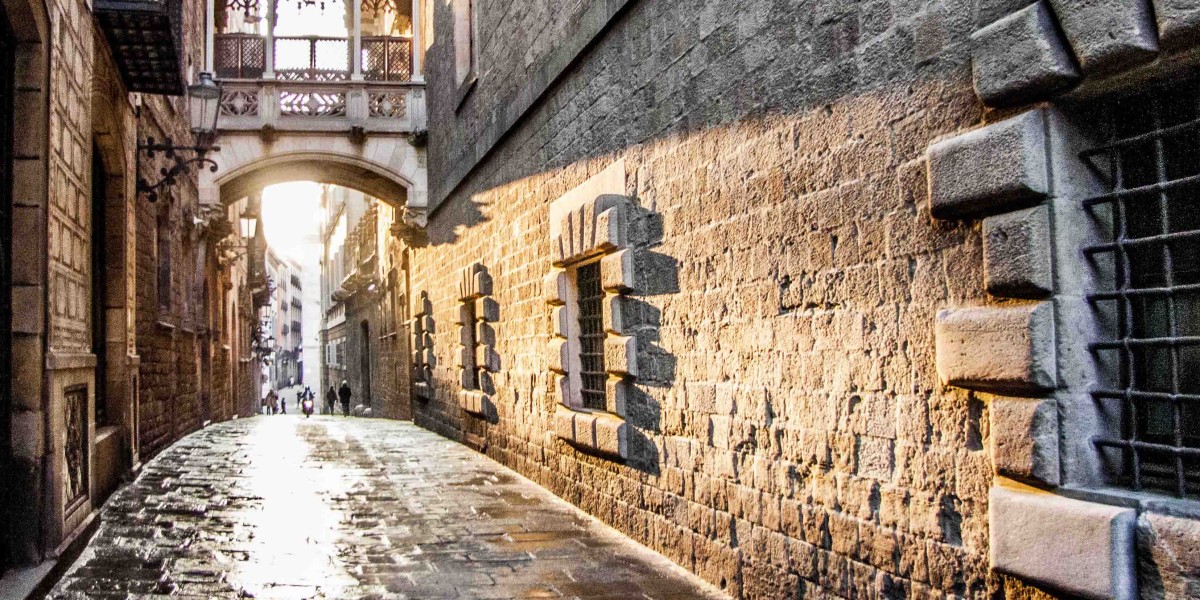
Barcelona is a city that captivates many with its architecture, culture and cuisine. Yet beyond its famous attractions, the city’s very name carries a fascinating history that few know. Why is it called Barcelona? The origin and meaning of the name have inspired legends, historical studies and numerous theories over the centuries.
History of Barcelona
Barcelona’s origins date back to pre-Roman times, when the region was inhabited by Iberian peoples, specifically the Laietans, after whom the iconic Via Layetana is named. However, it was the arrival of the Romans that saw the city begin to take shape and gain significance.
The Roman colony, founded in the 1st century BC, became an important administrative and commercial centre. Situated in what is now the Gothic Quarter, vestiges of this era can still be seen today. The city remained under Roman rule until the fall of the Empire, after which it came under Visigothic control and was later conquered by the Moors in the 8th century.
In 801, Barcelona was recaptured by the Frankish army and established as the capital of the County of Barcelona. Over time, the House of Barcelona came to rule the Crown of Aragon, bringing vast territories under its influence. Across the centuries, the city experienced conflicts, artistic flourishing and major urban transformations.

What is the origin of the name Barcelona?
If you’re wondering why Barcelona is called Barcelona, several theories exist –some based on historical evidence, others on enduring legends. Understanding the origins of the name offers insight into the city’s identity and unique character.
The Romans called their colony Barcino. But what does this name mean? One theory suggests it derives from “Bàrkeno”, a term or name in the Iberian language of the Laietans, which has been found on coins from the period.
Another popular, though less substantiated, theory links the name to the Carthaginian Barca family. According to legend, Hamilcar Barca, father of Hannibal, founded the city during his campaigns on the Iberian Peninsula in the 3rd century BC, naming it Barcino after his surname.
A third, more mythical explanation claims that Hercules, on a voyage with Jason and the Argonauts, founded the city after losing one of his ships near Montjuïc. The lost vessel – referred to as “barca nona” (the ninth boat) – supposedly inspired the name Barcelona.

What was Barcelona called before?
The history of Barcelona's name is a fascinating journey through the different cultures and civilisations that have left their mark on the city. These are some of the names the Catalan capital has had.
- Barkeno: This is the oldest name, derived from the Iberian language. It has been identified on coins and some inscriptions predating the arrival of the Romans.
- Barcino (Faventia Julia Augusta Pia Barcino colony): The official Roman name after the founding of the colony in the 1st century BC. Barcino is the most used and abbreviated form.
- Barshiluna / Barshaluna / Barsaluna: This is how the city was known during the period of Moorish domination (8th-9th centuries), according to Arabic sources.
- Barchinon / Barchinona / Barçalona: Medieval Latin names used in Visigothic, Carolingian and ecclesiastical documents during the Early Middle Ages and the Middle Ages.
- Barcelona: The modern form began to take shape in the 14th and 15th centuries and has persisted to this day.

Living in Barcelona
Living in Barcelona offers a cosmopolitan experience, where Gaudí’s modernist architecture blends with urban beaches and a lively cultural scene. The city boasts a mild Mediterranean climate, excellent cuisine and a unique mix of Catalan tradition and international flair.
Its neighbourhoods are full of character, from the bustling Eixample to bohemian Gràcia, and there's always something new to explore. Barcelona also stands out for its wide range of services and excellent public transport. Here’s what the Catalan capital has to offer:
